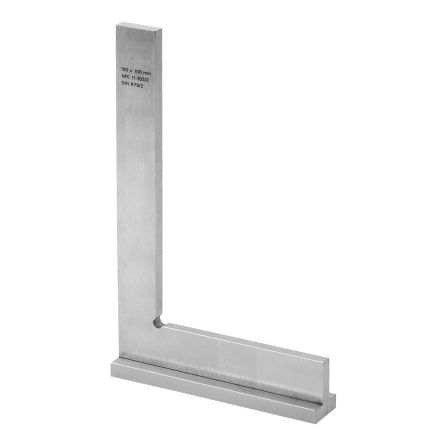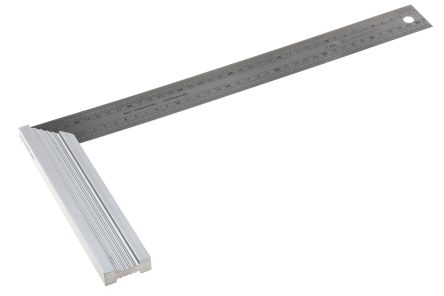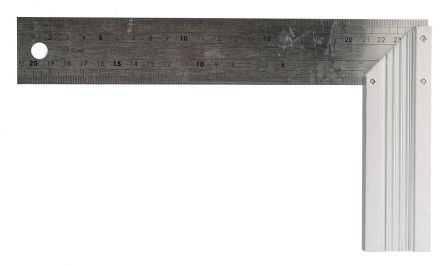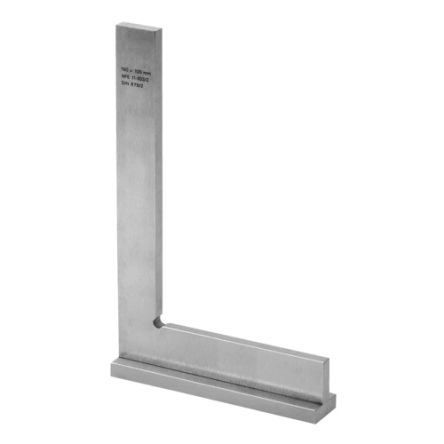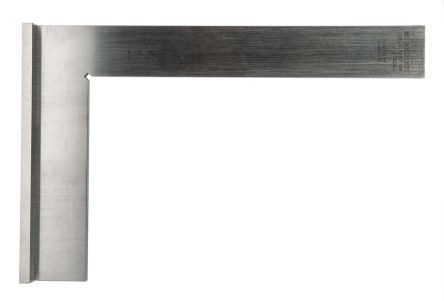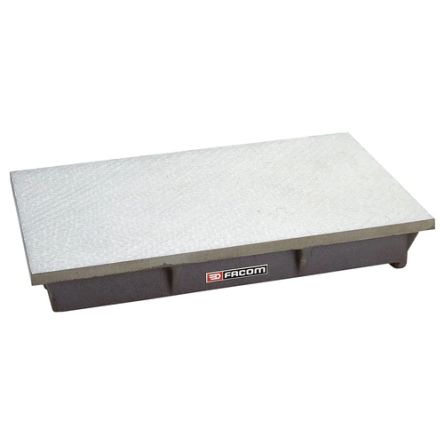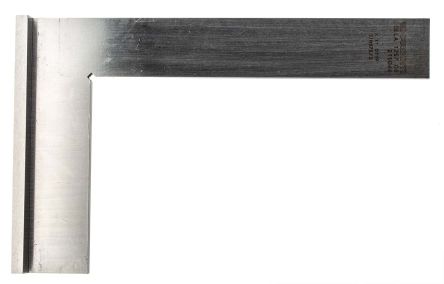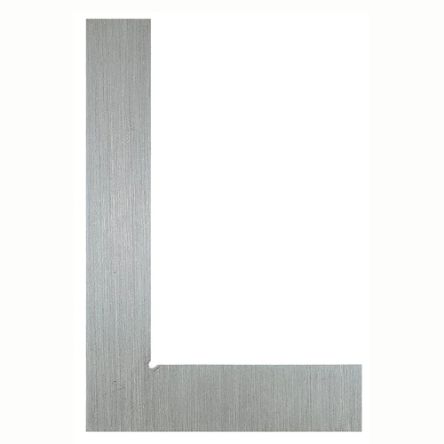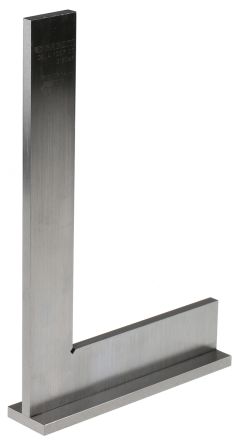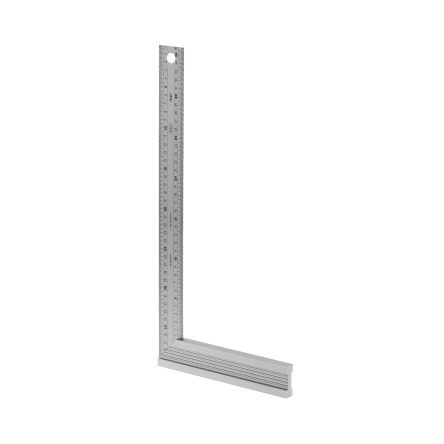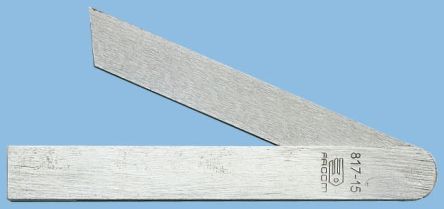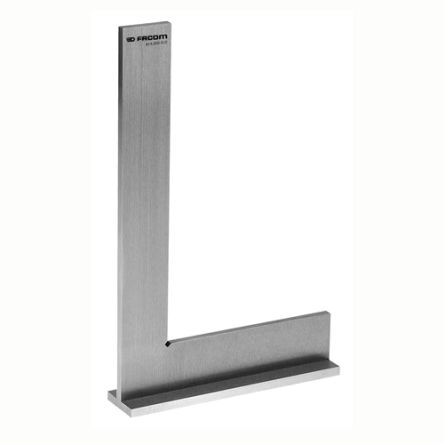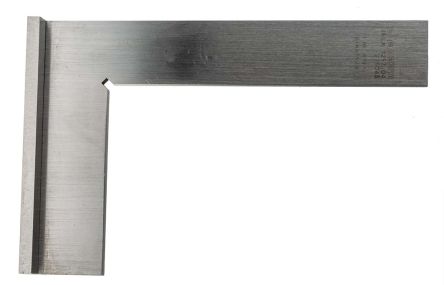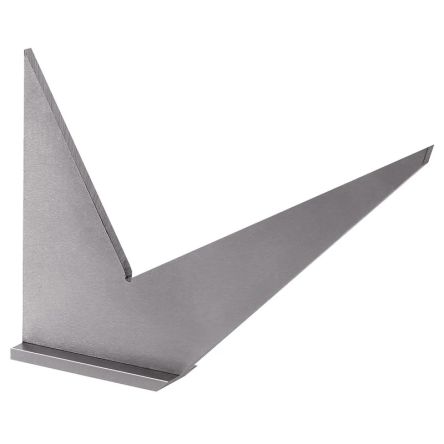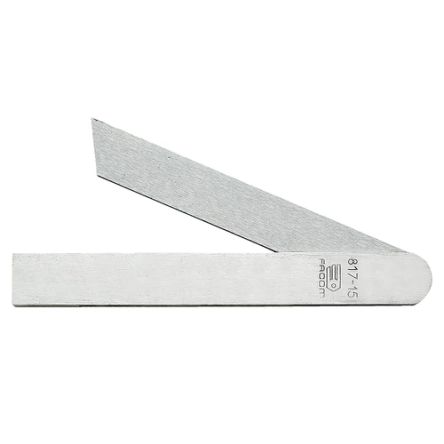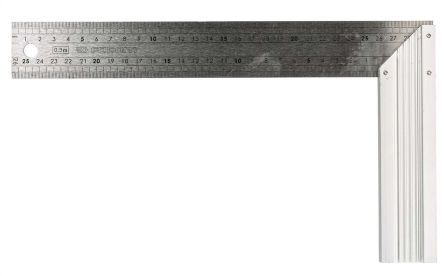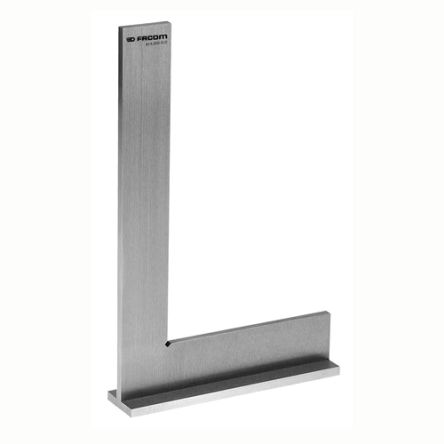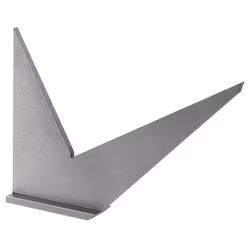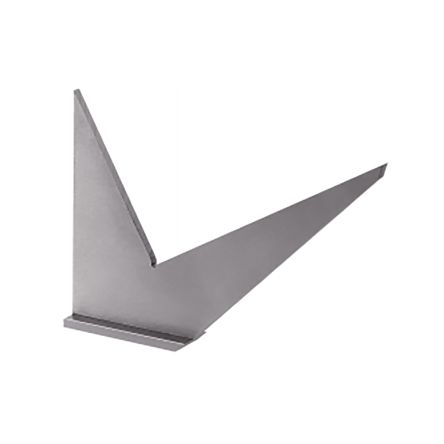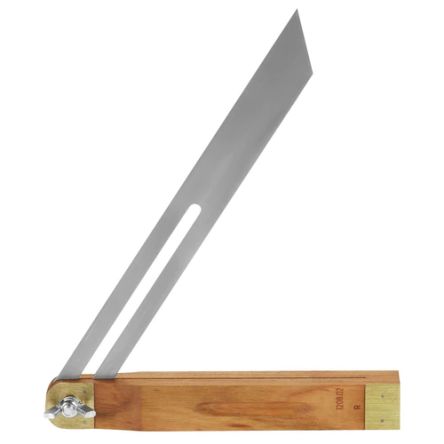- Automation & Control Gear
- Cables & Wires
- Enclosures & Server Racks
- Fuses & Circuit Breakers
- HVAC, Fans & Thermal Management
- Lighting
- Relays & Signal Conditioning
- Switches
- Batteries & Chargers
- Connectors
- Displays & Optoelectronics
- ESD Control, Cleanroom & PCB Prototyping
- Passive Components
- Power Supplies & Transformers
- Raspberry Pi, Arduino, ROCK, STEM Education & Development Tools
- Semiconductors
Facom Engineers Squares
Engineers square is a common tool that people use when they work on woodworking and metalworking projects. These are pretty much similar to try squares when it comes to appearance. Even the way how you use them is similar to try squares. The main purpose of using engineering squares it to determine whether a specific workpiece is square or not. In other words, the machinist square will check and see whether the two sides are making a 90 degree angle to each other. You will also be able to use a machinist square and draw a 90 degree angle.
What is an engineers square?
An engineers square, also known as a Machinist square, is a handheld marking and checking tool used to assess angles and mark straight lines. Made up of two straight pieces (stock & blade) which work together to create a right angle at exactly 90°. The two pieces of the engineer square intercept at the end creating a precision L shaped tool, these two pieces can vary in length for both small and large working environments. The purpose of an engineering square is to check that the angles are correct with whatever project or piece of work you are working on and to mark lines with the angles to make sure everything is correct and in line. You can learn more in our complete guide to engineers squares.
What is an engineers square used for?
Squares are often used for metalworking tasks as well as DIY and woodworking such as- Sheet metal fabrication Blacksmithing Carpentry Roofing General DIY and crafting work.
How to use an engineers square
The engineer square is frequently employed to verify genuine alignment of angles, edges, and plains. Squares are a pretty basic tool, but their complete variety of applications reveals them to be highly flexible.A precise machinist's or woodworker's square is a crucial instrument for many kinds of angle measurement as well as construction operations, in part because of this. All throughout the globe, different kinds are utilized on a regular basis and play important roles in tasks ranging from simple repairs to intricate engineering work that requires precision. They are often connected to professions like roofing, general construction and crafts, sheet metal fabrication, woodworking, and blacksmithing.The finest woodworking squares are used for many different construction and measurement activities, such as verifying precision, cutting square edges, marking lengths, bisecting angles, and locating the dead center of a circle.
What are Engineers Squares made of?
Made from a variety of materials, engineers squares are most commonly made of metal, more specifically hardened or tool steel. An engineers square is made totally of metal, both the stock and blade are made of steel to ensure that the tool remains accurate over time as well as having added durability in a working environment.
Getting the best engineering squares
Today, a wide variety of squares are offered for purchase. The most common forms span from the most fundamental and conventional try squares to far more durable ones, such as the application of all-metal engineers square set in both metalwork and woodwork.Larger equivalents, which do the same task at a larger scale, may be referred to as framing squares as well as drywall squares. To do more intricate jobs, you may also purchase more intricate and delicate multi-part instruments.
